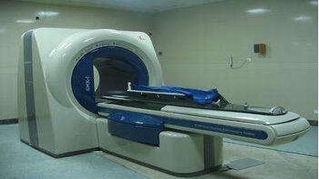
近日,一项刊登在国际杂志Laboratory Investigation上的研究论文中,来自堪萨斯城退伍军人医疗中心的研究人员通过研究发现,每日服用一定的剂量的阿司匹林或可有效阻断乳腺癌的生长,此前研究显示阿司匹林或许对结肠癌、胃肠道癌、前列腺癌等其它癌症均有一定的抑制作用。
Banerjee教授说道,在癌症治疗前期阶段一旦尽力去治疗患者,一般肿瘤都会有希望被有效遏制住,但由于癌症干细胞的存在,其往往会对化疗或其他癌症疗法产生耐受性,从而在机体深入开始休眠,一旦机体条件合适癌症干细胞就会死灰复燃,因此当癌症干细胞重新被激活增殖时,癌症就会变得难以对付。
为了检测阿司匹林是否可以改变乳腺癌细胞的分子特性而使其不再扩散,研究者利用培养中的细胞和小鼠模型进行研究;研究者将乳腺癌细胞置于96孔板中进行孵育培养,给其中一半的培养液中加入阿司匹林,随后研究者发现阿司匹林可以明显增加所检测细胞的死亡率,而没有死亡的细胞中也有很多细胞生长发生了延迟。
随后研究者对20只患恶性肿瘤的小鼠进行研究,在15天的研究时间里,研究者每日给予其中一半的小鼠和人类相同剂量的阿司匹林,即75毫克(被认为是最低剂量),在研究结束时,对小鼠机体中的肿瘤进行称重,结果发现,接受阿司匹林的小鼠的肿瘤平均重量减少了47%。
为了揭示阿司匹林可以抑制癌症,研究者们在额外的一组小鼠暴露于癌细胞之间给其施用阿司匹林,15天后相比对照组小鼠而言,这些小鼠机体肿瘤的癌性生长明显降低了;研究者说道,我们发现阿司匹林可以促使机体残留的癌细胞失去自我更新的能力,从本质上来讲这些癌细胞将不能够生长或再生。因此如果在化疗后给予患者一定的阿司匹林或可有效抑制患者机体癌症的复发,从而为改善患者的预后和生活质量提供一定的帮助。
专家们建议患者在服用阿司匹林之前咨询一下医生,因为这种药物可以稀释血液并且增加肠道出血的风险,当然阿司匹林存在一定的风险,但我们也不得不衡量一下其可以抵御癌症的效用;后期研究者将会进行更多的研究来阐明阿司匹林抑制癌症发展的机理,该研究为有效改善癌症患者的健康以及开发预防癌症复发的策略将提供一定的研究基础和线索。
.

doi:10.1038/labinvest
PMC:
PMID:
Aspirin blocks growth of breast tumor cells and tumor-initiating cells and induces reprogramming factors of mesenchymal to epithelial transition.
Maity G1, De A2, Das A1, Banerjee S3, Sarkar S4, Banerjee SK5.
Acetylsalicylic acid (ASA), also known as aspirin, a classic, nonsteroidal, anti-inflammatory drug (NSAID), is widely used to relieve minor aches and pains and to reduce fever. Epidemiological studies and other experimental studies suggest that ASA use reduces the risk of different cancers including breast cancer (BC) and may be used as a chemopreventive agent against BC and other cancers. These studies have raised the tempting possibility that ASA could serve as a preventive medicine for BC. However, lack of in-depth knowledge of the mechanism of action of ASA reshapes the debate of risk and benefit of using ASA in prevention of BC. Our studies, using in vitro and in vivo tumor xenograft models, show a strong beneficial effect of ASA in the prevention of breast carcinogenesis. We find that ASA not only prevents breast tumor cell growth in vitro and tumor growth in nude mice xenograft model through the induction of apoptosis, but also significantly reduces the self-renewal capacity and growth of breast tumor-initiating cells (BTICs)/breast cancer stem cells (BCSCs) and delays the formation of a palpable tumor. Moreover, ASA regulates other pathophysiological events in breast carcinogenesis, such as reprogramming the mesenchymal to epithelial transition (MET) and delaying in vitro migration in BC cells. The tumor growth-inhibitory and reprogramming roles of ASA could be mediated through inhibition of TGF-β/SMAD4 signaling pathway that is associated with growth, motility, invasion, and metastasis in advanced BCs. Collectively, ASA has a therapeutic or preventive potential by attacking possible target such as TGF-β in breast carcinogenesis.







